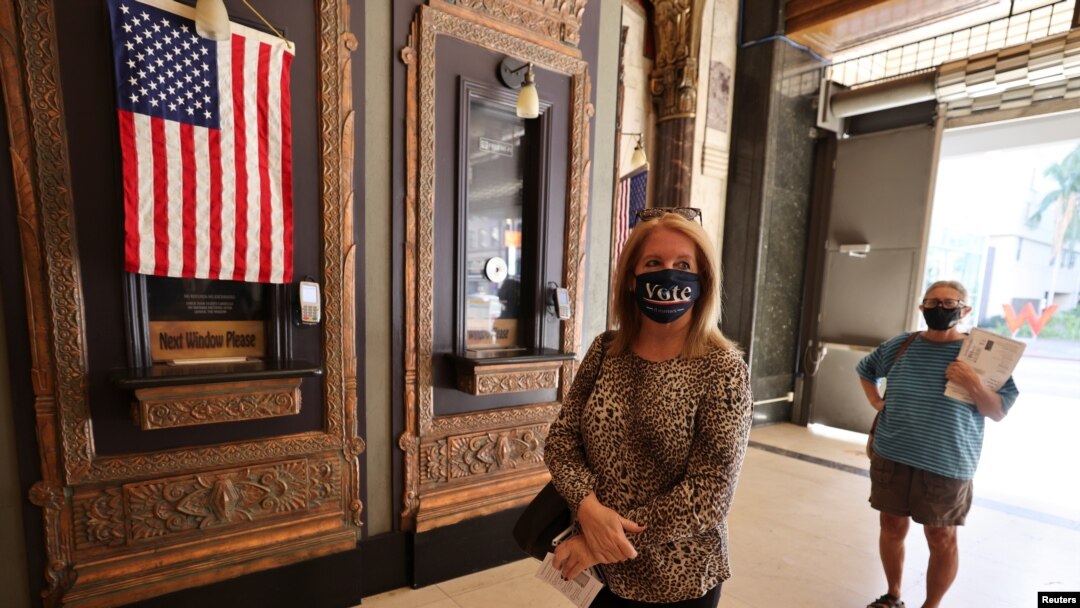The U.S. surpassed 9 million confirmed coronavirus cases Friday, recording more than 88,500 new cases in a single day and 1 million new cases in just two weeks, according to the Johns Hopkins University Coronavirus Resource Center.
As of Saturday morning, the U.S. had more than 9,048,400 cases of the coronavirus, an increase of about 30,000 infections since Friday afternoon. At least 229,711 people have died from COVID-19 in the U.S., according to Johns Hopkins.
Confirmed cases are on the rise in 47 U.S. states, and dozens of states set records Thursday for new infections in a single day, including the Midwestern states of Illinois, Wisconsin and Ohio, according to Johns Hopkins. Record daily highs were also reported in Texas, California and Florida.
Your browser doesn’t support HTML5
Global COVD-19 Cases Top 45 Million
The rising tide of new coronavirus cases worldwide is forcing leaders to consider new lockdown measures to contain an increase in infections.
Europe
British Prime Minister Boris Johnson discussed new lockdown measures at an unscheduled cabinet meeting Saturday after scientists warned that coronavirus hospitalizations and deaths could soon surpass levels not seen since spring when daily deaths topped 1,000. The meeting came after The Times of London newspaper reported that Johnson could soon announce a set of month-long lockdown measures.
In Greece, Prime Minister Kyriakos Mitsotakis said Saturday that bars, cafes, movie theaters and gyms across much of the country would be shut down beginning Tuesday. Most of the affected areas are in northern Greece and in the Athens area.
On Friday, Belgium imposed a partial lockdown aimed at controlling the pandemic that has hit the country harder than any other in the 27-nation European Union, according to the European Center for Disease Prevention and Control.
Belgium has a high ratio of infection, 1,600 cases per 100,000 people. In comparison, Spain and Italy have ratios less than a third of that. In addition, hospitals in Belgium have almost reached capacity.
Police officers patrol in central Brussels during a curfew imposed by the Belgian government as the spread of the coronavirus disease ( COVID-19) continues, in Brussels, Belgium, Oct. 30, 2020.
The new Belgian measures include restricted travel and shopping, reduced outside family contacts to one for the next six weeks, and mandatory teleworking.
French President Emmanuel Macron announced a nationwide monthlong lockdown, effective Friday, with restaurants, bars, cafes and other nonessential businesses closed. Citizens can leave their homes only for work, shopping and doctor appointments.
German Chancellor Angela Merkel announced a set of similar measures in her own monthlong lockdown, which takes effect Monday. In addition to restaurants and bars, all gyms, theaters and opera houses will be closed under Merkel’s order, while most businesses, shops and hair salons will be allowed to remain open.
Players go through a disinfection routine prior to the last training session of a youth soccer team of sports club " BLAU-GELB" before lockdown as the spread of the coronavirus disease (COVID-19) continues in Frankfurt, Germany, Oct. 30, 2020.
Schools in both nations will remain open during their respective lockdowns.
WHO
European countries, meanwhile, are calling on the global community to grant the World Health Organization greater authority to independently investigate outbreaks after the pandemic exposed the agency’s deficiencies.
After European Union ministers met to discuss the matter, German Health Minister Jens Spahn said Friday that countries should give the agency more political and financial support.
The WHO does not have the authority to independently investigate epidemics, forcing it to rely on countries to approve their lists of suggested experts and to abide by the agendas developed by them.
As of Saturday morning, there were about 45.7 million total coronavirus cases worldwide, including nearly 1.19 million COVID-19 deaths, according to Johns Hopkins statistics.
Meanwhile, record numbers of rare sea turtles have been born and released into the sea as the pandemic brings respite to a beach in Mexico.
Usually only 500 to 1,000 baby Olive Ridley turtles are released. This year 2,250 were released because of the absence of human interference due to the coronavirus pandemic.


